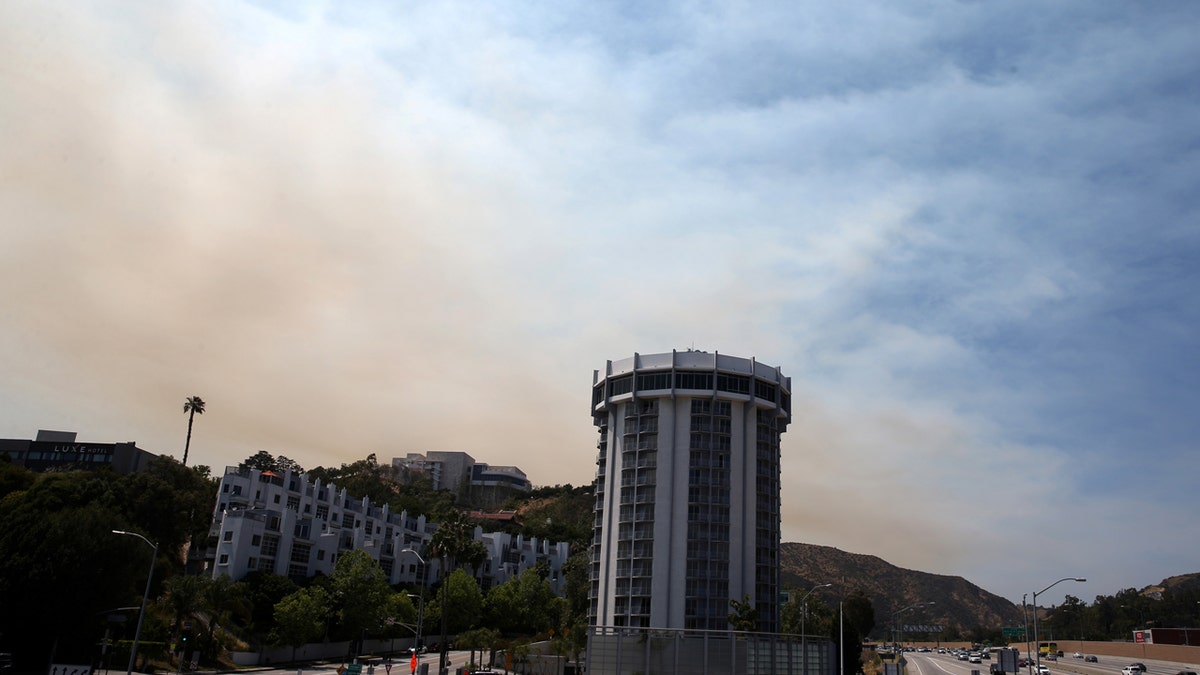
FILE: A wildfire burns behind Getty Center in Mandeville Canyon in Los Angeles (Reuters)
The head of California’s emergency services on Monday penned a letter to the U.S. Forest Service that raised to prospects that the state may stop protecting national forests during fires.
Emergency Services Director Mark Ghilarducci said the agency has stiffed local governments $18 million for fighting wildfires on federal lands last year.
"I cannot continue to support the deployment of resources to protect federal land that ultimately may bankrupt our local governments," Ghilarducci said in the letter sent Monday to Forest Service Chief Thomas Tidwell.
Rich Webb, chief of the Linda Fire Protection District, said the federal government's failure to meet the deadlines was particularly hard on smaller communities that had to push budget shortfalls to the current fiscal year.
Some communities were just recently reimbursed for last summer's Cedar Fire in Sequoia National Forest and several Northern California counties are still awaiting payments for other fires.
"They're frustrated to the point where they're considering not responding to Forest Service fires anymore," Webb said. "Why participate in this agreement if we're not being reimbursed? ... That's going to affect the entire mutual aid system throughout the state."
Nearly half the land in California is federally owned, and the greatest percentage of that is in National Forests. The dispute stems from longstanding commitments that coordinate and reimburse firefighters for work on federal lands.
Wildfires are fought with a combination of local, state and federal firefighters working under mutual aid agreements that often send them hundreds of miles from home. Massive encampments that sprout up at big wildfires include bean counters who tally the costs of fighting fires and figure out how to reimburse the many agencies helping out.
But Ghilarducci said the federal government was shirking its responsibilities to reimburse local governments by illogically relying on a "sudden interpretation" of a 1955 law that prevents the government from paying volunteer firefighters.
More than a third of the state firefighting force is made up of volunteers who expect to be paid when called into action far from home, Ghilarducci said.
It was "appalling and absurd" that the Forest Service had "blatantly ignored its financial responsibility to the men and women of California who have risked their lives fighting fires to protect federal land," Ghilarducci said.
Messages left seeking comment from the federal agency were not immediately returned.
Char Miller, a professor of environmental analysis at Pomona College who has written extensively about the Forest Service, said it was shocking the federal government had reneged on a longstanding agreement, particularly as fire season heats up and agencies will want to know if they're going to be repaid.
"It's troubling where California feels it needs to go public with its disagreement," Miller said. "It seems to me this is not just a turf war, but a reflection that this very delicate cross-agency, cross-jurisdiction cooperation is fraying at the seams and that's bad news as the fire season roars away in California."
Ghilarducci said Forest Service staff refused to cooperate with the state on the matter and had obstructed efforts to honor its commitments.
The federal government is supposed to repay local governments within two months, but more than 90 percent of payments from last year missed that deadline. Two-thirds of payments in 2015 were late.
Miller said there may be a reasonable explanation for the failure to make the payments or it could be a symptom of the Forest Service now spending about half its budget on firefighting and trying to push some of those costs to the state.
But that's not how the system has worked for much of the past century where agencies have helped each other fight fires that quickly spread across jurisdictional boundaries, he said.
The Associated Press contributed to this report











































